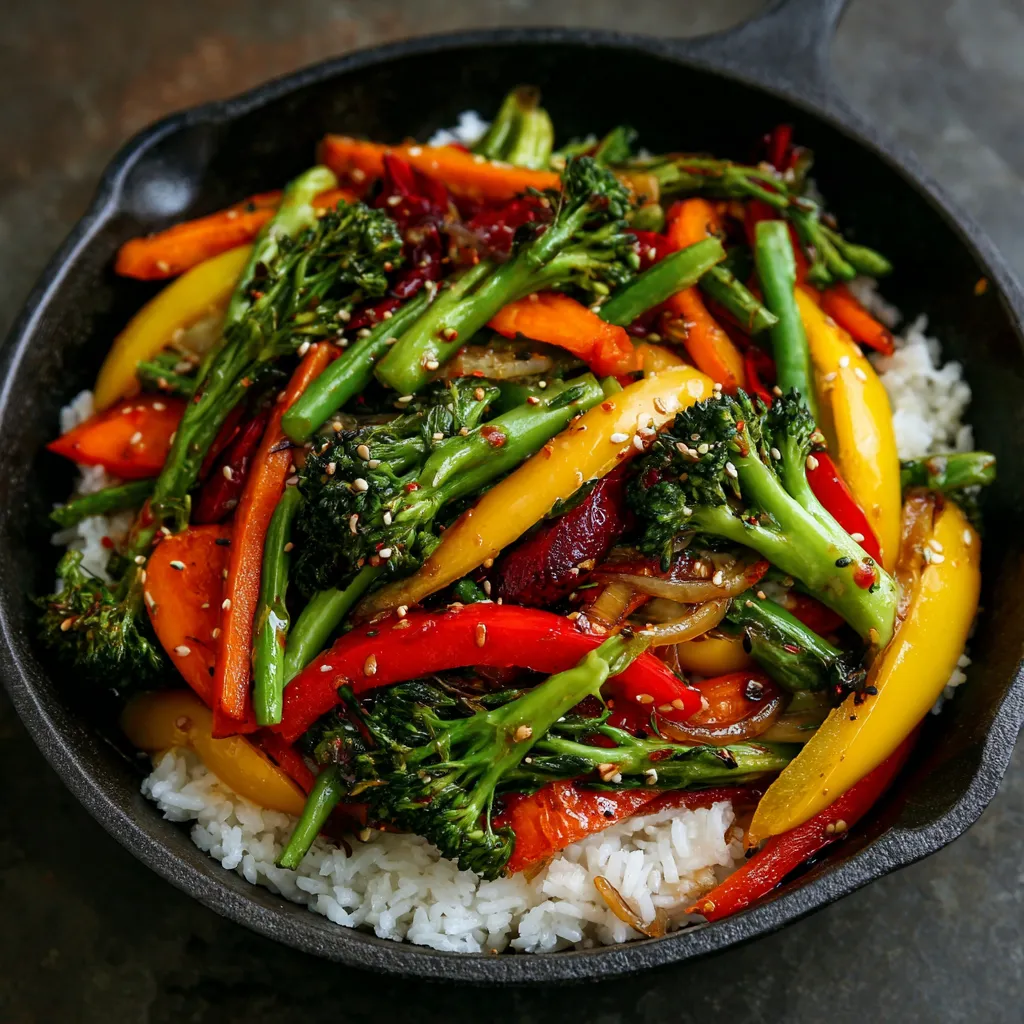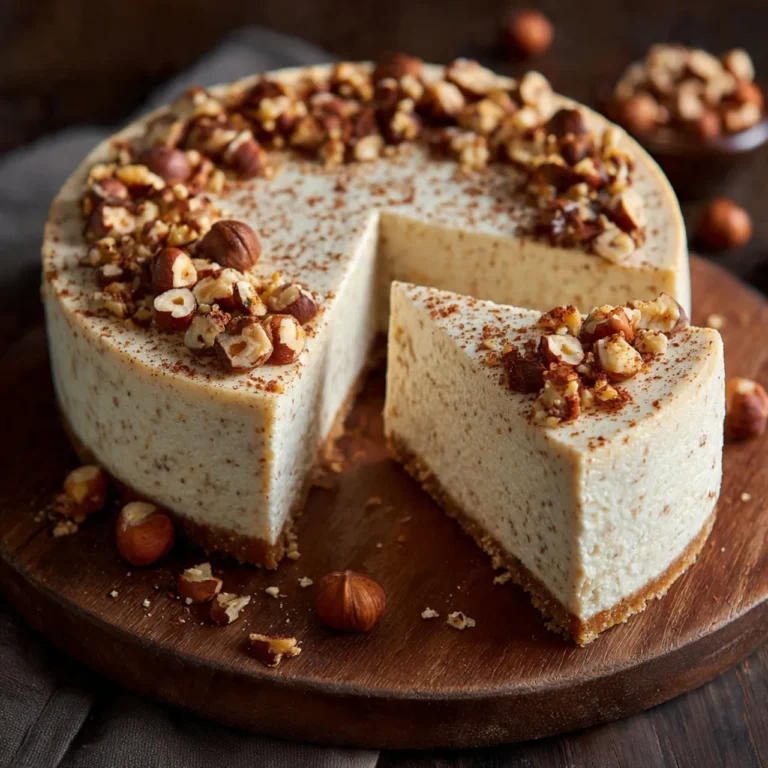Few dishes are as versatile, colorful, and satisfying as a Vegetable Stir-Fry. Whether you’re looking for a quick weeknight dinner, a nutrient-rich lunch, or a side dish to complement your main meal, this recipe delivers it all. Packed with vibrant vegetables, a savory stir-fry sauce, and endless customization options, vegetable stir-fry has become a global favorite for good reason.
In this comprehensive guide, we’ll dive deep into how to make the perfect vegetable stir-fry, explore ingredient variations, share cooking tips, and even look at nutritional benefits. By the end of this article, you’ll not only have a recipe in hand but also the knowledge to make it your own.
Why Vegetable Stir-Fry is a Must-Try
- Quick to Prepare – Most stir-fries come together in under 30 minutes.
- Nutrient-Dense – Rich in vitamins, fiber, and antioxidants.
- Customizable – Use whatever vegetables are in season or in your fridge.
- Diet-Friendly – Naturally vegetarian, easily adapted to vegan, keto, or gluten-free diets.
- Budget-Friendly – Requires inexpensive ingredients yet tastes gourmet.
Ingredients for Vegetable Stir-Fry
Here’s a standard recipe base. You can always swap or add based on what’s available.
For the Stir-Fry:
- 2 tablespoons vegetable oil (canola, sesame, or avocado oil)
- 3 cups broccoli florets
- 1 red bell pepper, sliced
- 1 yellow bell pepper, sliced
- 1 medium carrot, thinly sliced on the diagonal
- 1 zucchini, sliced
- 1 cup snow peas or sugar snap peas
- 1 small red onion, sliced
- 2 cloves garlic, minced
- 1 tablespoon fresh ginger, minced
- 1 cup mushrooms, sliced (shiitake, button, or cremini)
For the Stir-Fry Sauce:
- 1/4 cup soy sauce (low-sodium preferred)
- 2 tablespoons rice vinegar
- 2 tablespoons hoisin sauce (or oyster sauce if not vegetarian)
- 1 tablespoon sesame oil
- 1 tablespoon cornstarch (dissolved in 2 tablespoons water)
- 1 teaspoon honey or maple syrup (optional, for sweetness)
- 1/4 teaspoon red pepper flakes (optional, for heat)
Optional Garnishes:
- Sesame seeds
- Fresh cilantro
- Sliced green onions
- Crushed peanuts or cashews
Kitchen Tools You’ll Need
- A wok or large skillet (nonstick or cast-iron recommended)
- Wooden spoon or spatula
- Mixing bowls
- Sharp knife and cutting board
- Small whisk for the sauce
- Measuring cups and spoons
Step-by-Step Instructions
Step 1: Prep All Ingredients
Stir-frying happens quickly, so wash, chop, and measure everything before you heat your pan.
Step 2: Make the Stir-Fry Sauce
In a small bowl, whisk together soy sauce, rice vinegar, hoisin sauce, sesame oil, and cornstarch slurry. Set aside.
Step 3: Heat the Pan
Place your wok or skillet over medium-high heat. Add vegetable oil and let it get hot, but not smoking.
Step 4: Cook Aromatics
Add garlic and ginger, sauté for about 30 seconds until fragrant.
Step 5: Stir-Fry Hard Vegetables
Start with carrots and broccoli, since they take the longest to soften. Cook for about 3–4 minutes.
Step 6: Add Softer Vegetables
Toss in bell peppers, zucchini, and onions. Cook for 2–3 minutes, stirring frequently.
Step 7: Finish with Quick-Cooking Veggies
Add mushrooms and snap peas. Stir-fry for another 2 minutes.
Step 8: Pour in Sauce
Reduce heat slightly, then add your stir-fry sauce. Stir until vegetables are evenly coated and sauce thickens (1–2 minutes).
Step 9: Garnish and Serve
Remove from heat, sprinkle with sesame seeds or nuts, and serve hot over rice or noodles.
Tips for the Perfect Vegetable Stir-Fry
- High Heat is Key – Stir-frying should be fast and hot for crisp-tender veggies.
- Don’t Crowd the Pan – Overcrowding traps steam, making veggies soggy. Cook in batches if necessary.
- Vary the Textures – Combine crunchy (carrots, broccoli) with softer vegetables (zucchini, mushrooms).
- Balance Flavors – Adjust sauce with sweetness (honey), saltiness (soy sauce), acidity (vinegar), or heat (chili flakes).
- Protein Boost – Add tofu, chicken, shrimp, or beef strips for a heartier dish.
Serving Suggestions
- Classic Pairing: Serve over steamed jasmine rice.
- Noodle Stir-Fry: Toss with lo mein, soba, or rice noodles.
- Healthy Bowl: Layer with quinoa, brown rice, or cauliflower rice.
- Side Dish: Pair with roasted meats, grilled fish, or dumplings.
Nutritional Value (Approx. per serving, without rice)
- Calories: 180
- Protein: 6 g
- Fat: 9 g
- Carbohydrates: 20 g
- Fiber: 5 g
- Sugars: 7 g
- Vitamin C: 150% DV
- Vitamin A: 120% DV
- Iron: 10% DV
Health Benefits of Vegetable Stir-Fry
- Supports Weight Management – Low-calorie, high-fiber dish that keeps you full.
- Boosts Immunity – Vitamin C from bell peppers and broccoli strengthens defenses.
- Gut Health – Fiber-rich vegetables aid digestion.
- Antioxidant Powerhouse – Protects cells from damage and promotes overall health.
- Heart-Friendly – Naturally low in cholesterol and saturated fat.
Variations and Flavor Twists
- Thai-Inspired: Add coconut milk, lime juice, and Thai basil.
- Spicy Sichuan Style: Use chili paste and Sichuan peppercorns.
- Teriyaki Version: Swap hoisin with teriyaki sauce and add pineapple chunks.
- Peanut Stir-Fry: Add peanut butter to the sauce for creaminess.
- Mediterranean Fusion: Add cherry tomatoes, olives, and feta cheese.
Common Mistakes to Avoid
- Using Cold Pan – Always heat oil before adding vegetables.
- Overcooking – Veggies should be crisp-tender, not mushy.
- Wrong Oil – Avoid butter or olive oil with low smoke points; use sesame or canola.
- Skipping Sauce Thickener – Without cornstarch, sauce won’t coat vegetables properly.
Storing and Reheating
- Refrigeration: Store leftovers in an airtight container for up to 3 days.
- Freezing: Not recommended, as vegetables lose texture.
- Reheating: Heat in a skillet over medium heat for best results; microwave works but may soften vegetables.
Conclusion
A Vegetable Stir-Fry is more than just a quick meal—it’s a canvas for creativity, health, and flavor. Whether you stick to the recipe or experiment with your own combinations, you’ll always end up with a dish that’s vibrant, nourishing, and satisfying.
Next time you’re short on time but want a meal that’s fresh, delicious, and full of nutrients, grab your wok and whip up this vegetable stir-fry. Once you try it, you’ll see why it’s a staple in kitchens worldwide!






